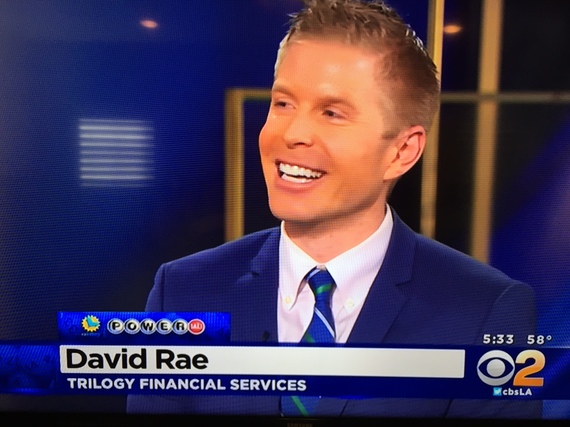
Who Will Care for LGBT Boomers sa they age? Anyone beyond the gay community? Listen up LGBT Boomers you can’t control getting older, but you can influence the quality of life. Does your gay retirement plan provide for the cost of LGBT Long Term Care? More importantly, would you like it too? Gay Finanancial Planner LA David Rae outlines the ins and out of aging well for the Gay Community.
An estimated 60% of total caregiving to those age 65 or older is given by family members according to CCR researchers Anek Belbase, Anqi Chen and Alicia Munnell. This estimate does not bode well for the level of expect care for LGBT retirees. More gay retirees may need to proactively purchase long term care coverage.
By David Rae Certified Financial Planner™, Accredited Investment Fiduciary™
I was just at a big charity fundraiser filled with “power gays” (as one guest put it), well-off gentlemen of a certain age who are heavily involved in philanthropy and business within the LGBT community. The topic of aging came up with several people voicing concern about what is in store for our soon-to-be-elderly LGBT population.
We as a community need to talk about this. On the one hand, there’s a lot of denial going with our emphasis on youth in gay male culture. On the other, there was a whole generation of gay men who perished during the AIDS crisis meaning that today’s Boomers and Gen-Xers don’t necessarily have a road map to follow (or the ability to learn from the mistakes) from those who came before us. Furthermore, with marriage equality comes a whole new paradigm meaning that we’re making it up as we go along. We haven’t seen people we know struggle with the issues of LGBT Long Term Care.
To put this in context, there are an estimated 65,000 + LGBT people over the age of 64 currently living in Los Angeles. A staggering 68% of these LGBT seniors are living alone. Many LGBT Boomers are struggling to afford the sky-high cost of living in Los Angeles. LGBT retirees are four times less likely to have children to help with elder care. Would you believe, nationally two of ten LGBT retirees live on less than $20,000 per year?
An estimated 33-50% of Palm Springs are gay males or other members of the LGBT community.
Update: In light of the Coronavirus Pandemic wreaking havoc on Nursing Homes, planning for Long Term Care Needs is even more imperative for the LGBTQ community as we age. Talk to your gay financial advisor about options to fund Home Health Care and other resources to help you age in place, or find the higher end Senior Care Facilities if needed.
Booomers LGBT Retirment Living In Context
American LGBT Baby Boomers who are beginning to enter retirement age now helped advance the gay rights movement in this country. During their adult lives, they saw homosexuality change from being classified as a mental or criminal disorder. We have gone on to winning marriage equality both in the courts and at the ballot box. To be sure, health care and aging will be a challenge for all Boomers. Nobody, but nobody has saved or invested near enough to cover the costs — but LGBT retirees face a few extra retirement challenges. These may include gay-specific issues such as homophobia in nursing homes or by health care providers of the Kim Davis persuasion. And as a community that still has more single people than coupled ones, we are more vulnerable to increased costs of Long Term Care incurred by single and/or childless seniors.
Also, a concern for many is the long term effect of the treatment of HIV. Once an assumed death sentence, HIV has become much more of a chronic illness that can be managed. That said, current treatments are still terribly hard on the body. Strict diligence is absolutely necessary and a cure remains elusive. How years of these treatments will change the quality of retirements for people living with HIV has yet to be seen.

Ins and Outs of Long Term Care (LTC) for the LGBT Boomers Community
LTC is defined as the assistance or supervision that a person who is physically or cognitively impaired needs to get through the day. With few exceptions, no federal or state program will pay for custodial assistance over an extended period of time. Quite often, and traditionally, much of this care may be given by children or family members. With so many in the LGBT community less likely to be partnered or parents, they are at greater risk not necessarily having family relations in place to help with this care.
LGBT Boomers Repeat after me:
Long Term Care is one of the biggest expenses in retirement. According to the US Department of Health and Human Services, about 70% of people 65 and over will need some form of Long Term Care during their lives. The prices are shocking, and they’re certain to continue to rise exponentially between now and when you actually need care. For example, currently, in Florida, a semi-private nursing home room costs around $78,000 per year. While a private room in New York will run a whopping $131,000 per year.
The average Boomer has nowhere near that amount saved, let alone set aside enough to cover health care expenses. In fact, only one-seventh of Boomers, gay or straight, have purchased any LTC insurance at all. Unfortunately, there are many misconceptions about how LTC will be paid for. People may expect Medicare or their health insurance to cover these costs but guess what? They won’t.
Since a majority of people who purchase LTC coverage are married couples, it follows that so far the LGBT community, much of which is single, is less covered than the population as a whole. But there is good news for married gay couples. The calculations used to qualify for Medicare coverage are often more advantageous for a married pair versus two “single” individuals. Plus, all married couples will have fewer hurdles to jump through to avoid tax problems when one spouse is paying for care for the other.
Secure Retirement Is All Up to You LGBT Boomers
Single people are at more risk of needing to pay for care since they don’t have a spouse other to provide it.
But whether married or single most of the responsibility for cost and care will fall on the individual or individually purchased insurance. Either way, you will need money to pay for this care.
Similarly, people without children are also at a greater risk of sky-high medical bills. You may have heard about the sandwich generation, providing care or support for aging parents, while still raising kids. But who will be taking care of the childless Baby Boomers when they need help . . . especially if they have used funds they needed for their own retirement to pay for their own aging parents’ care.
What should you do now? Gay Boomers Should You Buy LGBT Long Term Care Insurance?
Make sure your retirement plan is on track and takes into account potential future health care expenses. Also consider purchasing a Long Term Care Policy, Hybrid Long Term Care Policy or a Life Insurance Policy with Living benefits that can cover LTC needs. A Fiduciary Certified Financial Planner™ can be invaluable in helping clarify your options. I often recommend purchasing (if appropriate) the insurance sooner than later. Applying earlier will help to avoid the risk of being uninsurable due to pre-existing conditions. It will also likely result in lower monthly premiums.
Things are looking up for the LGBT Boomers and community as we grow up. Indeed we continue to find new ways of enjoying full and rewarding lives up to and including our later years. We are living longer, happier and healthier than ever. We keep moving closer to equal rights as well as social and political parity, even in the hinterland. We’re not there yet, but we’re getting there. As time passes, homophobia issues in nursing homes will hopefully decrease too. Will it take years? decades? Only time will tell.
What you can do for yourself now is prepare for the future. Make sure you have a plan prepared for the fun and challenges ahead. Remember Gay Money Matters.
Live for Today, Plan for Tomorrow. Gay Money Matters.
DAVID RAE Certified Financial Planner™, Accredited Investment Fiduciary™ is a Palm Springs and Los Angeles Gay Retirement Planning Specialist with DRM Wealth Management focused on helping the LGBT Community become more Fiscally Fabulous for over a decade. He lives in West Hollywood and Palm Springs with his husband and two Chihuahuas.

Follow him on on Facebook at www.facebook.com/davidraecfp
For More information visit www.davidraefp.com
Article Originally published in the Advocate Magazine and Huffington Post.
You may also like the LGBT Financial Planning Article:
How Love And Marriage Will Change The Perfect LGBT Retirement.










[…] curve when shedding some light on the impending retirement crisis facing the aging US population. Gay retirees share many of the same threats to a secure retirement faced by these funny ladies. As a group we […]
[…] are up to date. Obtain the proper amounts of life insurance, and consider disability and long-term care insurance. Also remember you will now most likely be filing your taxes jointly. So be strategic with […]
[…] That concern is especially prevalent among my LGBT clients who ponder “Who Will Care for LGBT …. Highlighting the issues faced by seniors who do not have children. […]
[…] Financial Planner Los Angeles – Will Anyone Care for LGBT Boomers? […]
[…] balances by several million dollars. We are facing a retirement planning crisis in America. Boomers, GEN X, and even Millennials are not saving enough to comfortably retire and the average person is […]
[…] Related: Who Will Care for LGBT Boomers […]
[…] I’ve previously written about the major concern of who will care for LGBTQ seniors. As a group, we are more likely to live apart from family or be estranged from them for that matter. Years of discrimination in housing, employment, healthcare, lack of marriage equality, and the AIDS crisis, has left many LGBTQ seniors unprepared for a financially secure retirement. […]
[…] I’ve previously written about the major concern of who will care for LGBTQ seniors. As a group, we are more likely to live apart from family or be estranged from them for that matter. Years of discrimination in housing, employment, healthcare, lack of marriage equality, and the AIDS crisis, has left many LGBTQ seniors unprepared for a financially secure retirement. […]
[…] I’ve previously written about the major concern of who will care for LGBTQ seniors. As a group, we are more likely to live apart from family or be estranged from them for that matter. Years of discrimination in housing, employment, healthcare, lack of marriage equality, and the AIDS crisis, has left many LGBTQ seniors unprepared for a financially secure retirement. […]